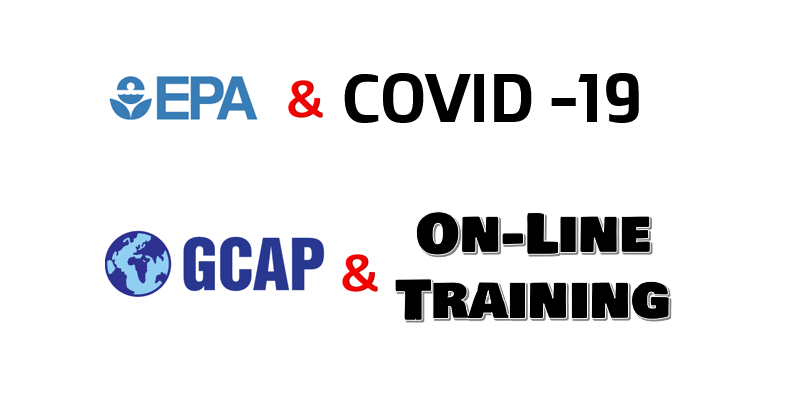As all of us at the U.S. Environmental Protection Agency adjust to the evolving COVID-19 pandemic,
we are first and foremost mindful of the health and safety of the public, as well as our staff, and those of
Federal Agencies, State and Local Governments, Tribes, Regulated Entities, Contractors, and Nongovernmental Organizations. The agency must take these important considerations into account as we all continue our work to protect human health and the environment. Accordingly, we are announcing the following temporary policy regarding EPA enforcement of environmental legal obligations during this time. Temporary enforcement is at this link: COVID-19 Implications for EPA’s Enforcement This policy will apply retroactively beginning on March 13, 2020.
The EPA will exercise the enforcement discretion specified below for noncompliance covered by this
temporary policy and resulting from the COVID-19 pandemic, if regulated entities take the steps applicable to their situations, as set forth in this policy. For noncompliance that occurs during the period
of time that this temporary policy is in effect, and that results from the COVID-19 pandemic, this policy
will apply to such noncompliance in lieu of an otherwise applicable EPA enforcement response policy.
The enforcement discretion described in this temporary policy do not apply to any criminal violations or
conditions of probation in criminal sentences. Appropriate consideration of potential criminal liability is
discussed separately, below.
ENFORCEMENT DISCRETION
Civil Violations
General Conditions: All enforcement discretion set forth in this temporary policy is conditioned on the following.
- Entities should make every effort to comply with their environmental compliance obligations.
- If compliance is not reasonably practicable, facilities with environmental compliance obligations
should:- Act responsibly under the circumstances in order to minimize the effects and duration of
- Identify the specific nature and dates of the noncompliance
- Identify how COVID-19 was the cause of the noncompliance, and the decisions and
actions taken in response, including best efforts to comply and steps taken to come into
compliance at the earliest opportunity - Return to compliance as soon as possible;
- Document the information, action, or condition specified in all the above
Routine compliance monitoring and reporting by regulated entities. The consequences of the pandemic may constrain the ability of regulated entities to perform routine compliance monitoring, integrity testing, sampling, analysis, training, and reporting.
Many training classes are offered on-line and such on-line training generally should not be affected by travel and social distancing constraints. If practicable, sectors mandated to function with certified
operators should maintain normal certification and training practices. If not practicable due to the
COVID-19 pandemic, the EPA believes that it is more important to keep experienced, trained operators
on the job, even if a training or certification is missed.
GCAP has many online courses and adding to the list daily. We can perform all the following through online training:
- Ammonia Awerenss
- PSM/RMP Awereness
- Industrial Ammonia Refrigeration Part 1
- Industrial Ammonia Refrigeration Part 2
- Steam Boiler
- Machinery Room Design
- Inspection / Testing / Maintenance
- RAGAGEP
- Ammonia Refrigeration Process Safety
- Certification Testing
- Re-Certification Testing
- Majority of a PSM/RMP Compliance Audit can be performed without being on-sight.
- Anything else you would like to see
The state of Kansas announced today all non-essential employees to stay home. GCAP is classified under the executive order as essential and our doors will be open. If you have any need that we can assist to you such as in-house training, online training, testing, re-certification, etc…. please give us a call and we will assist your training and compliance needs.
620.271.0037

